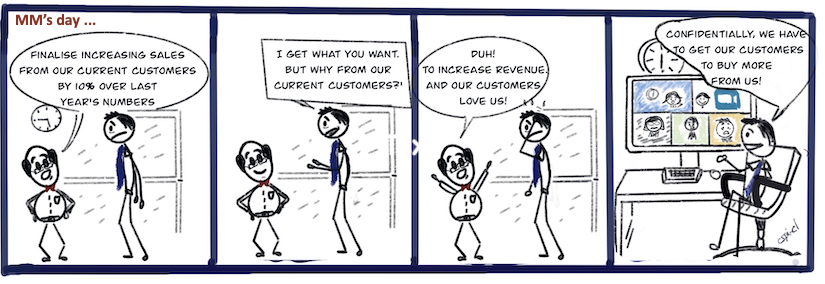It is almost the end of the workday when Maria receives a call from the admin assistant to the head of HR.
“ Helen has asked me to ask you to please interview all the Level 2, 3 and 4 leaders to determine their successor plans and to analyze them and provide a report to her in 3 months. Will that be ok?”
“Hmmm. I will have to think about it as that will be about 150 interviews which will likely last more than an hour based on past experience. And my staff currently have full plates. Let me get back to her on this.”
Maria has two choices: One is to think about HOW she is going to get this done and, two is to find out exactly WHY this is being asked.
WHY must come before HOW
The WHY must always come before the HOW. Knowing the purpose and expected result could lead to several different ways of achieving the goal.
In this case it could lead to a simple survey instead of 150 interviews. It could lead to very focused interviews to gather just the right answers, rather than an open ended interviews that could meander through many interesting but not pertinent paths. Or, in the absence of a set of guidelines for succession planning, it might a wide ranging collective conversation exploring what different leaders are or are not doing.
Given all these possibilities knowing the WHY becomes really important.
As MM’s it is wise to find out as clearly as possible the WHY.
Just asking what the WHY is, isn’t always going to get the answer. Rather approach it from the point of view (POV) of the result needed.

The 26 slide report
I learned this after I had asked a staff member to provide me a report on a project. I wanted it as I was presenting an update on a number of activities to the Board of the bank in which I was a senior executive. I specified the time for the report to be given to me. It di not arrive on time. I went to the staff members office and asked him where the report was. He was flustered and said “It is almost ready I just have to complete 2 more slides.” That stopped me in my tracks, because in my mind I was expecting a one page, bullet point, summary of the status of the project.
I was guilty of not explaining the WHY and the staff member was guilty of not asking WHY. Had I said to him when delegating the task: “ I need an update on the project which will be one of the areas I am updating the Board. I will not be going into a lot of detail so a one pager with bullet points will be fine. They will only be interested to know if it is on track or what of any issues that might affect its completion on time and budget”, he would have probably delivered it to me before lunch!
As MM’s we sometimes get requests 2nd or 3rd hand. If that is the case we want to find out from the “the horses mouth” the WHY.

As MM’s we need to protect our DR’s from unnecessary work. Seldom is the senior person making requests aware of the current workload of you and your DR’s. By knowing the WHY you will more easily be able to come up with alternative ways of getting the result needed.
As MM’s we need to protect our DR’s from unnecessary work. Seldom is the senior person making requests aware of the current workload of you and your DR’s. By knowing the WHY you will more easily be able to come up with alternative ways of getting the result needed.
Often a request will not include that degree of specificity. It might, as with me in the bank that time, be a request to “give me a report by Friday!”. The HOW is left to the staff and without the WHY he, in this case, produced 26 slides when a one-pager was all that was needed.
Targets need WHY’s
A number of requests come down as targets – cut expenses by x%, increase sales by y%, reduce staff by z%, increase productivity by x%.
KPI’s are often worded in the form of a numerical objective. MM’s are left to work out the HOW’s.
Knowing the WHY will help you manage you time and activities in collaboration with your staff.
Action 1: THINK: What have I been asked to do without knowing the WHY?
Action 2: THINK: What might I done differently had I known the WHY?
Next time – Delegating part 1

